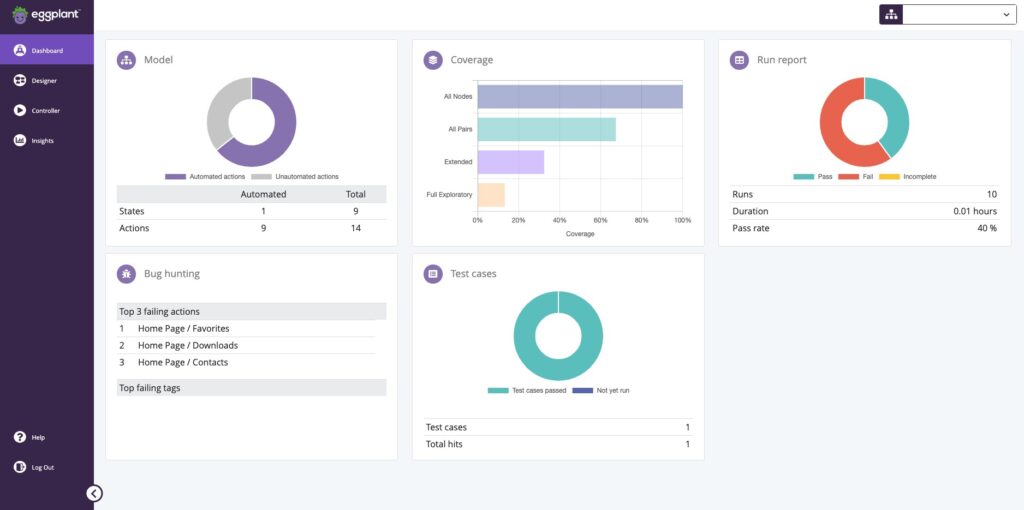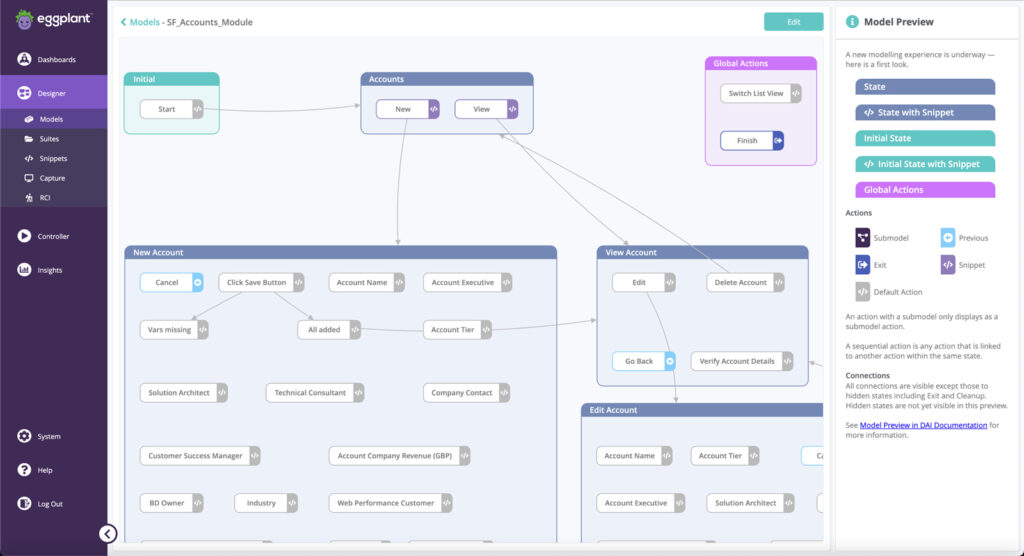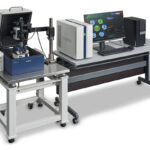ASIA ELECTRONICS INDUSTRYYOUR WINDOW TO SMART MANUFACTURING
Keysight’s Automated Test Improves Software Quality
Wide range of industries are embracing digitalization and software-based innovation and development have been on the spotlight. True enough, software quality and reliability will play crucial role in the enablement of digitalization and automation.
Keysight Technologies proposes intelligent automation of entire test lifecycle – from test-case creation through test execution to automated results analytics. Its test tool platforms based on artificial intelligence (AI) accelerates development and provides visibility and insights into how users navigate digital properties.
The company has been boosting its automated software test market for the past years and has recently acquired Eggplant, a software test automation test platform provider that makes use of AI and analytics to automate test creation and test execution. This fortifies Keysight Technologies’ strategcy to grow its software-centric solutions.
Dr. Gareth Smith, Keysight’s General Manager of Software Test Automation, provides his perspective on the importance of software quality in determining business success. Dr. Smith was Eggplant’s Chief Technology Officer (CTO) before Keysight Technologies’ acquisition in June 2020.

Can you give your take on the importance of software quality nowadays?
For the last decade, organizations have focused on releasing new apps and services as quickly as possible to keep up with rapidly changing demands and support digital transformation. However, with the push for speed of delivery, software quality has often lagged behind.
The quality of software is critical in a digital-first world. For example, an undetected flaw can trigger system outages, and a misconfiguration of cloud platforms can result in a data breach or data loss. Software defects drastically increase the cost of development. Furthermore, once software is released, the cost of finding and fixing is significantly higher than during the design/development phase.
How can organizations improve the quality of their software?
With rapid software development, prioritizing testing and monitoring is necessary to provide a frictionless, high-quality (omni-channel) digital experience that results in successful user outcomes. In addition, the next-generation software testing platforms support this by incorporating the latest AI techniques that learn from real application usage, historical bug patterns, and which application behaviors yield the most critical business outcomes. These platforms can automatically generate tests that focus on the user journeys in the application that are the most important to business success. This end-to-end intelligent test automation within a DevOps framework allows companies to deliver improved quality software faster while freeing up teams to increase their productivity.

How is DevOps impacting testing strategies and what role does Keysight’s intelligent automation platform play?
DevOps is about breaking down silos between different teams to coordinate and collaborate to produce better, more reliable products faster. By adopting a DevOps philosophy, teams have increased confidence in the applications they build, are better able to meet customer needs, and achieve business goals faster.
The success of DevOps is intrinsically linked to test automation, as manual testing cannot address the ever-expanding test surface with increasing release frequencies. However, it is not enough to automate a handful of tests or administrative processes. To succeed in the digital age, development and test automation engineers must collaborate with the operations team to ensure software and applications deliver on their ultimate goal of delighting users.
Here at Keysight, we are helping testing teams intelligently automate the entire testing lifecycle from test-case creation through test execution to automated results analytics.
AI plays huge role in many mega trends now. How is AI changing test automation strategies?
AI enables test automation to move beyond its scope of simple rule-based automation. It utilizes algorithms to efficiently train systems using large data sets. Through the application of reasoning, problem-solving, and machine learning, an AI-powered test automation tool can mimic human behavior and reduce the direct involvement of software testers in mundane tasks.
Intelligent test automation evaluates the functionality, performance, and usability of digital products rather than simply verifying code. It incorporates AI, machine learning, and analytics to test and monitor the user experience (UX); it analyzes apps and real data to auto-generate and execute user journeys. The result is a smarter way to continuously test software and apps, whatever they are running on.

Can you explain how are the roles of human programmers and AI-powered test tools complementary?
AI is making the process of designing, developing, and deploying software faster, better, and cheaper. It’s not that robots are replacing programmers. Instead, AI-powered tools make project managers, business analysts, software coders, and testers more productive and more effective, enabling them to produce higher-quality software faster and at a lower cost.
Here at Keysight, our intelligent automation platform allows citizen developers to easily use our no-code solution that draws on AI and analytics to automate test execution across the entire testing process.
How is Keysight Technologies’ automation platform transforming test automation?
Keysight’s intelligent automation platform is the only completely non-invasive testing tool, ensuring comprehensive test coverage without ever touching the source code or installing anything on the system-under-test (SUT).
The AI-powered automation can test any technology on any device, operating system, or browser at any layer, from the UI to APIs to the database.
What are the prospects you see related to software quality?
The importance of software quality will continue to grow as the pace of digital adoption accelerates. Every digital organization must continuously monitor the performance of digital properties and how users are interacting to ensure it delivers the best possible experience. Here are 5 trends that we believe will happen in the world of QA in the next three years:
Quality assurance as a profit center than compliance function
Unless your software is released first, has an amazing UX, flawless functionality and great responsiveness, your business will struggle or fail. However, if you manage to achieve those goals, you will succeed.
User experience as key differentiator
Your UX is your shop window – it draws your customers and needs to keep them there. It had better be excellent, or you’ll be left behind.
Performance
If you have performance delays of greater than 3 seconds at any point, your business will fail. Millennials have little patience, Generation Z has even less! 3 seconds is the amount of time your customers will wait for a delay before heading to a competitor. Better and continuous load and performance testing are needed to ensure scale and responsiveness.
The Digital Nemesis
Testing must become even smarter, a digital nemesis can find the weak spots intelligently in any system using AI-powered “chaos engineering,” highlight them and allow them to be fixed before anyone ever knows. This applies to functionality, performance, UX and security.
End-to-end fusion testing
From hardware to UX. Gone are the days of testing one layer of your stack or one type of testing. Testing the 5G handset, testing the 5G base station, testing the network load, testing the application ability to handle load, functional testing, API testing, performance testing, security testing, testing on iOS, testing android, testing cloud testing Windows.
We need to take testing to the next level – with multi-layer fusion testing – bringing together the skills of the hardware, network, software and UX testers into one end-to-end framework.




